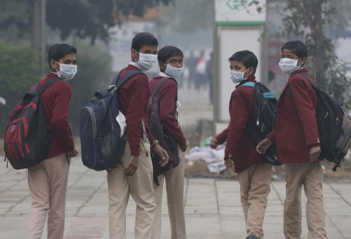A recent study by the Lancet Commission on Pollution and Health, that one in six deaths around the world in 2015 was linked to smog in some way – from air, water, soil, chemical or occupational pollution. That’s 9 million people, just counting deaths, not suffering from related symptoms. Low- and middle-income countries are hit the hardest, (China, India and much of Africa), with children carrying the highest risk. “Pollution disproportionately impacts the poor and the vulnerable,” said Dr. Olusoji Adeyi, commissioner and director of the health, nutrition and population global practice at the World Bank Group.
The challenge for developing countries is to not follow the path of the industrialized West by building up coal and fossil fuel energy infrastructure, but to develop industries and infrastructure using green, renewable energy plans. In other words, do what we say and not what we did. How can we expect nations to ditch plans for coal mining and power plants when the resources are there to mine? There has to be an economic drive, and the winners have to include big industry.
The longer the world continues to depend on carbon-emitting fossil fuel, the more greenhouse gas will be emitted that warms the planet and exacerbates global warming. This is one reason why we as individuals must take it upon ourselves to limit our personal carbon footprint, without waiting for government to act. The most effective habit to take on is our eating habits. Eating low on the food chain – whole plant foods rather than animal foods (meat, milk, eggs, fish, etc) – use less energy and emit less greenhouse gas. Every step you take to eat this way counts towards a stable, cleaner planet, so start with dinner!
Death from Heart Disease than Pollution
I’d like to point out that close to double the number of people whose death is linked to pollution, died from cardiovascular disease (CVD) in that same year, another silent killer. The tragedy here is that most of those deaths, (and suffering from the symptoms including high blood pressure, chest and leg pain, high cholesterol, and poor circulation), could have been avoided. CVD is a food-born illness. It can be addressed and often reversed, with food therapy. So can most type 2 diabetes. That therapy is simple and universal – it’s consuming mostly whole plant foods, (whole grains, legumes (beans), fruits and vegetables). It’s that simple, and doesn’t depend on your government or health insurance plan.
As I cover in my upcoming book Climate Party!, eating this way also lessens your carbon footprint, and gives us the best chance at controlling global warming now and in the future.
May we strive for a future free of CVD, and clean, plentiful water, air and soil for everyone!
Written by Kathy Pollard, M.S.


